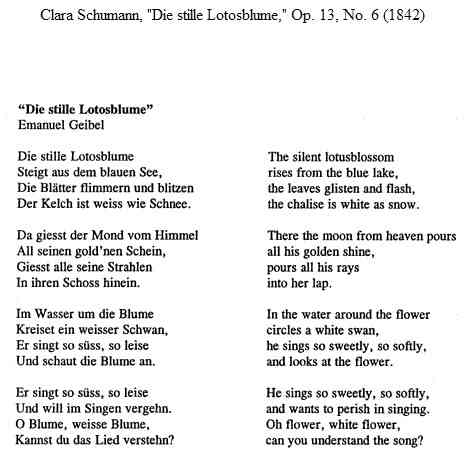
H ome’ is not just the place where we now live; it’s also the place where we first lived, and it’s the source of everything that our childhood meant to us.”Chopin’s piano Etude in G-flat major (6-flats key signature), Op. 10, No. 5 ‘lays so well’ under the hand. All black-keys and visually dense, sure. F-sharp (G-flat) major [D-sharp (E-flat) minor], all black keys, cognitively challenging. But, surprisingly, that Chopin Etude is as biomechanically natural as can be.
— Janet Schmalfeldt, keynote remarks at the 26th Society of Music Theory Conference, 2003.
But what about timbrally and cadentially ‘natural’? What key signatures present expressive or rhetorical challenges, instead of cognitive or biomechanical ones? How about B minor (2-sharps key signature) for cello or viola? The tonic B puts this key a semitone below the pitch of the open bottom string on these instruments (C2 and C3, respectively). For a composer to sacrifice the gestural option of the low-note sonority on those instruments creates a unique sort of expressive tension or ‘challenge’.
I think a composer does not sacrifice the open low string unless the intent is specifically to deprive the player and the listeners of that sonority; unless the composer’s intent were to create an acoustic homeland where it is impossible to go, and to concomitantly make us aware of the land’s existence and attractiveness.
The ear and mind yearn to go to that note; the destination beckons. The transcultural naturalness of this is nearly universal. The metaphor of the tonic as a natural, cadential resolution is intuitive. Our familiarity with the timbres of each instrument makes us acutely aware of what registers are and are not being traversed; and the harmonies and voice-leading in the composition set up conditions that pull and pull toward the inevitable low. But the homeland stays impossibly beyond our reach. It is a powerful state of (psychic) exile.
[50-sec clip, Aurora Quartet, Prokofiev String Quartet No. 1, Allegro, 1.4MB MP3]
And in fact Prokofiev’s String Quartet No. 1, Op. 50 (1931) was commissioned by the U.S. Library of Congress, during his period of ‘exile’ in Japan, the U.S., and Europe. The Andante is a tremendously veiled, circumspect thing. It has a ‘pinched’ quality about it, emotionally constrained, un-forthcoming, yet thin-skinned and approachable—we feel immediate empathy for the character embodied by each instrument’s part. The Quartet No. 1 is pensive in a way that is more ‘epic’ than the notes that comprise it.

Compare the pensive, political effect to other B minor pieces for cello or viola:
- Dvorák’s Cello Concerto in B minor, Op. 104
- Casadesus’s Viola Concerto in B minor
- Vivaldi’s Concerto in B minor for 4 Violins & Cello No. 10, Op. 3
- Rota’s Intermezzo in B minor for Viola and Piano
- Paganini’s Caprice No. 16 in B minor for Cello
- Piatti’s Caprice No. 10 in B minor for Cello, Op. 25
- Zemlinsky’s Quintet for Clarinet and String Quartet B minor, Op. 115.
[50-sec clip, Aurora Quartet, Prokofiev String Quartet No. 1, Andante, 1.4MB MP3]
Founding members of the Aurora String Quartet [Sharon Grebanier (violin), Mariko Smiley (violin), Margaret Tait (cello), Don Ehrlich (viola)] recorded a wonderful version of this Quartet in 1995. There are other versions, of course, but this one remains my favorite—for evoking this pensiveness and frustrated longing of diaspora, the boundary between what one wants and what can never ‘be’: the cadential low B of home.
Bard College’s Festival of Music this Fall is on Prokofiev. The Festival volume edited by Simon Morrison is a wonderful compilation of essays on topics that will be addressed at the Festival. Have a look, too, at the new book edited by Paul Allatson and Jo McCormack—for more ideas on the aesthetic theory of exile; David Goodman’s chapter on northwest China and ‘exile as quasi-nationality without a nation’ is especially good.

- Bard Music Festival, Weekend 3, 24-26 October 2008, Prokofiev and His World
- Aurora String Quartet. Prokofiev: String Quartets Nos. 1 & 2. (Naxos, 1995.)
- Wang Dan, student protester at Tiananmen Square, escaped Beijing on 27-MAY-1989, arrested, spent four years in prison, was re-arrested in MAY-1995 and sentenced to a further 11 years' imprisonment, released in 1998, exiled in the U.S., Harvard PhD in 2008.
- Prokofief.org
- DSM. Black-key biomechanics. CMT blog, 30-OCT-2006.
- DSM. St. Patrick’s Mass Away from Home: Eric Sweeney, Minimalism, and Migrancy. CMT blog, 16-MAR-2008. [diaspora]
- DSM. La Catrina Quartet and Àlvarez: Collage Against Nationalism. CMT blog, 20-NOV-2007. [diaspora]
- Don Ehrlich page at San Francisco Academy Orchestra
- Don Ehrlich page at San Francisco Conservatory of Music
- Margaret Tait page at San Francisco Symphony Orchestra
- Sharon Grebanier page at San Francisco Symphony Orchestra
- Mariko Smiley page at San Francisco Symphony Orchestra
- Schmalfeldt J. Coming home. Keynote address, Society of Music Theory Conference, 2003. MTO 2004; 10(1).
- Allatson P, McCormack J, eds. Exile Cultures, Misplaced Identities. Rodopi, 2008.
- Morrison S, ed. Sergei Prokofiev and His World. Princeton Univ, 2008.
- Naficy H. Home, Exile, Homeland: Film, Media, and the Politics of Place. Routledge, 1998.
- Simpson J, ed. Oxford Book of Exile. Oxford Univ, 1995.

No comments:
Post a Comment